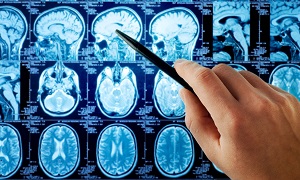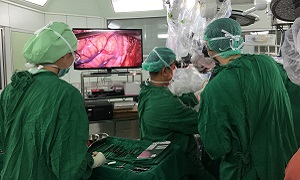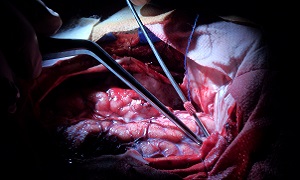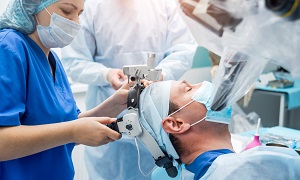Best Doctors in India for Brain Trauma Surgery
Best Brain Trauma Surgery Hospitals in India
- City: Mumbai, India
Hospital Highlights:
- Fortis Hiranandani hospital was established in 2007.
- The hospital is an advanced tertiary care, multi-specialty hospital equipped with 149 beds.
- The hospital is equipped with a super ICU to provide emergency medical care to critically ill patients.
- The hospital is NABH accredited.
- The critical care facility in the hospital is augmented with the state-of-the-art facilities that facilitate speedier diagnosis and efficient monitoring.
- The hospital provides specialty medical services in cardiology, orthopedic science, pediatric science, neurology, diabetic care, urology, nephrology, ENT, obstetrics, gynecology, cosmetic surgery, bariatric surgery, neuro and spine care.
- City: Gurugram, India
Hospital Highlights:
- W Pratiksha Hospital, Gurugram, is one of the best hospitals in the NCR region. It is also a top hospital in India for IVF. Since its inception, the hospital has performed over 5500 successful IVFs. The hospital also specializes in gynecology.
- With over 20 years of experience in providing quality healthcare, the hospital is known as one of the most trusted and valued health providers in India.
- Equipped with world-class medical facilities and advanced technology, the hospital’s doctors and clinicians also have a track record of delivering excellent results. The hospital is also known for focusing on preventive well-being as much as on curative treatment.
- The hospital has earned the trust of its patients, by providing the best available treatments at affordable costs.
- City: Gurugram, India
Hospital Highlights:
- Paras hospital was established in 2006 and is the 250 bedded flagship hospital of Paras Healthcare.
- The is supported by a team of doctors of international and national repute.
- The hospital is NABH accredited and also the first hospital in the region to have a NABL accredited laboratory.
- The hospital provides specialty medical services in around 55 departments including Neurosciences, Joint Replacement, Mother & Child Care, Minimal Invasive Surgery, Gynecology and Obstetrics, Ophthalmology, Dermatology, Endocrinology, Rheumatology, Cosmetic and Plastic surgery.
- The hospital is equipped with state-of-the-art technologies.
- City: Kolkata, India
Hospital Highlights:
- Fortis Hospital, Anandapur, Kolkata is a world-class super-speciality equipped with the latest technologies in the medical world.
- The hospital is NABH accredited.
- This state-of-the-art facility specializes in cardiology and cardiac surgery, urology, nephrology, neurosciences, orthopaedics, digestive care, emergency care and critical care.
- The hospital, governed by integrated Building Management System (IBMS), has a pneumatic chute system, for quick vertical and horizontal transportation between floors, facilitating speedy transfer of patient specimens, documents, reports, and medicines to the concerned departments.
- The hospital also has a nephrology department with over 28 advanced dialysis units.
- City: Mumbai, India
Hospital Highlights:
- SL Raheja hospital is a 140-bed multi-specialty tertiary care hospital that is being managed by Fortis Healthcare Ltd.
- The hospital is a benchmark in healthcare and medical facilities in the neighborhood of Mahim & the western suburbs.
- L.Raheja Hospital, Mahim has one of the most effective ICU and Casualty care services.
- The hospital provides specialty medical services in Cardiology, Oncology, Neurology, Orthopedics, Mother & Child Care, and in Diabetes.
- City: Mumbai, India
Hospital Highlights:
- Wockhardt Hospitals were established in the year 1973, originally called First Hospitals and Heart Institute.
- Wockhardt Hospitals are super specialty health care networks in India, nurtured by Wockhardt Ltd, India’s 5th largest Pharmaceutical and Healthcare company.
- Wockhardt Hospitals is associated with Partners Harvard Medical International, an international arm of Harvard Medical School, USA.
- Wockhardt Heart Hospital performed India’s first endoscopic heart surgery.
- The hospital has a state-of-the-art infrastructure equipped with the latest technologies and modern equipment.
- It has special Centers of Excellence dedicated to the major specialties to provide hassle-free and high-quality clinical care.
- City: Gurugram, India
Hospital Highlights:
- The CK Birla Hospital in Gurugram is a NABH-accredited multi-specialty hospital.
- The hospital strives to increase the quality of healthcare by focusing on UK NHS nurse and midwife training requirements. Policies and practices derived from the National Institute for Health and Treatment Excellence (NICE) recommendations in the United Kingdom ensuring that a strong focus on safety, high-quality clinical care, and sanitation is maintained.
- The hospital’s cutting-edge technology and facilities allow for real-time communication and seamless collaboration among caregivers, ensuring accuracy and the best possible results. Those with foreign experience and accreditations make up part of the hospital’s team of clinicians.
- City: Ahmedabad
Hospital Highlights:
- As a member of the Apollo Hospitals Group, Apollo Hospitals International Limited, Ahmedabad is one of the most popular and sought-after medical facilities in Gujarat.
- Through its 6 Centres of Excellence and various affiliated branches, which cover all specialties and subspecialties, the hospital provides the most advanced clinical services.
- Since its inception in 2003, the hospital has been providing each patient with the most up-to-date medical equipment and state-of-the-art technology.
- With more than 150 successful organ transplants, including liver and renal transplants, the facility has been able to build a strong and extensive organ transplant program.
- In addition to performing 600 surgeries and caring for over 1800 patients on an IP basis, the hospital sees more than 18,000 patients on average in the outpatient department.
- With one of the biggest cardiology teams in the area, the hospital provides state-of-the-art regional care treatment in Cardiac Sciences.
- Additionally, the hospital offers a broad range of Neuro Interventional techniques to help stroke patients recover more quickly.
- City: Noida, India
Hospital Highlights:
- Jaypee Hospital is the flagship hospital of the Jaypee Group.
- This hospital has commissioned 525 beds in the first phase and has been planned and designed as a 1200 bedded multi-specialty facility.
- It holds the accreditation of the NABH and NABL.
- The hospital has state-of-the-art infrastructure equipped with the latest technologies and modern equipment like 64 Slice PET CT, Dual Head 6 Slice SPECT CT, Gamma Camera, and Da Vinci Robotic Surgery for comprehensive robotic surgical solutions.
- It has special Centers dedicated to the major specialties to provide hassle-free and high-quality clinical care.
- City: Mumbai, India
Hospital Highlights:
- Reliance Hospital is one of the best super-specialty care hospitals in Navi Mumbai.
- The main purpose of this hospital is to become a trustworthy place for the best health and hope for society. The hospital is well connected to the suburbs of Mumbai and Navi Mumbai.
- The hospital has various specialty departments, viz., Accident & Emergency, Anesthesiology, Dental Services, Dermatology, Diabetology, Dietetics Nutrition, Endocrinology, ENT, Gastroenterology, General Surgery, Gynaecology And Obstetrics, Hepato Pancreato Biliary Surgery, Infectious Disease, Internal Medicine, Interventional Radiology, Laboratory Medicine, Minimal Access Laparoscopic Surgery, Nephrology, Neurosciences, Opthalmology, Orthopaedics, Paediatrics, Pain Management Palliative Care, Physical Medicine Rehabilitation, Plastic And Reconstructive Surgery, Psychiatry, Pulmonary Medicine, Radiology, Rheumatology, Transplant, Urology Andrology, Vascular Surgery
Traumatic Brain Injury
Symptoms
Depending on the type and location of the injury, a person suffering from a traumatic brain injury can show the following symptoms:
- Loss of consciousness
- Feelings of depression
- Seizures
- Confusion and disorientation
- Memory loss / amnesia
- Sleep disturbances
- Dizziness/loss of balance
- Fatigue
- Headaches
- Visual problems
- Poor attention / concentration
- Irritability / emotional disturbances
- Vomiting
If you or your child has received a blow to the head or body, that concerns you or has lead to any behavioral changes, then you should see a doctor immediately. Seek emergency medical care if there are signs or symptoms of traumatic brain injury after a recent blow or another traumatic injury to you or your child’s head.
Causes
Traumatic brain injury is caused due to a blow or other traumatic injury to your head or body. The degree of damage might depend on several factors, which include the nature of the injury as well as the force of impact.
Common events that generally lead to traumatic brain injury can include the following:
Falls- If you fall from your bed, a ladder, in the bath, or down the stairs, it can cause traumatic brain injury. It is the most common cause overall, among older adults as well as young children.
Violence- Gunshot wounds, domestic violence, child abuse, and such assaults are also common causes. A shaken baby syndrome is a traumatic brain injury that can happen to infants if they are shaken violently.
Sports Injuries- Sometimes a traumatic brain injury can also result from sports such as soccer, football, boxing, baseball, skateboarding, hockey, etc. These are common mostly among the youths.
Collisions- Collisions involving cars, motorcycles, bicycles, or pedestrians, can also lead to traumatic brain injury.
Explosive blasts or combat injuries- Among military personnel, explosive blasts are a common cause of traumatic brain injuries. It is still, however, not understood, how the damage occurs, but according to many researchers, the pressure waves passing through the brain can significantly disrupt brain function.
Traumatic brain injury can also be a result of penetrating wounds, severe blows to the head, or falls or bodily collisions with any objects following a blast.
Diagnosis
When a person is brought to the emergency room with a head injury, doctors try to learn as much as they can about the symptoms, as well as the cause and extent of the injury.
A GCS or Glasgow Coma Score is a 15-point test that is used to grade a patient’s level of consciousness. This test helps doctors assess how responsive and conscious a patient is.
Next, diagnostic imaging tests are performed, which can include the following:
Magnetic Resonance Imaging (MRI)
Computed Tomography (CT)
Magnetic Resonance Spectroscopy (MRS)
Treatment
In mild cases of traumatic brain injury, rest and medication might be enough to relieve headaches.
Medications can include anti-seizure drugs or coma-inducing drugs, etc.
However, in severe cases, surgery may be required, to address the following problems:
Repairing skull fractures
Removing clotted blood (hematomas)
Bleeding in the brain
Opening a window in the skull
Surgery can also be used to relieve pressure inside the skull by draining accumulated cerebral spinal fluid or creating a window in the skull that helps to provide more room for swollen tissues.
Most people having a significant brain injury can require rehabilitation. They can relearn basic skills, such as walking or talking. This helps to improve their abilities while performing daily activities.
Complications
Immediately or soon after a traumatic brain injury, there might be several complications. The more severe the injury is, the higher the chances of greater complications.
A person can fall into a coma, where he/she is unaware of anything and unable to respond to any stimulus. A person can also fall into a vegetative state, where a person may open his or her eyes, though he/she is unaware of his/her surroundings. A vegetative state can also become permanent, though generally, individuals progress to a minimally conscious state. In a minimally conscious state, there are signs of self-awareness.
However, when there is no measurable activity in the brain and the brainstem, this is known as brain death. This condition is considered irreversible.
There might be physical complications as well, such as seizures, infection, hydrocephalus, blood vessel damage, headaches, or vertigo. These symptoms may last for a few weeks to a few months, after a traumatic brain injury.
Sometimes, traumatic brain injuries at the base of your skull can cause nerve damage to the nerves that emerge directly from one’s brain, i.e. the cranial nerves. If these nerves are damaged, it can result in:
- Paralysis of facial muscles or loss of sensation in the face
- Loss of or altered sense of taste
- Loss of vision or double vision
- Loss of or altered sense of smell
- Problems while swallowing
- Ringing in the ear
- Dizziness
- Hearing loss
Many people who suffer a significant brain injury can show cognitive problems, such as problems in memory and learning new things. Some people can problems while solving problems or multitasking.
Problems with communication are also common following a traumatic brain injury. Many people also experience changes in behavior and emotion.
According to research, it has also been suggested that repeated or severe traumatic brain injuries can increase the risk of degenerative brain diseases.
A degenerative brain disorder causes gradual loss of the functions of the brain. These disorders include Alzheimer’s disease, Parkinson’s disease, etc.
Prevention
To reduce the risk of brain injury, follow these tips:
Seat belts and helmets- If you are driving or riding in a car, always remember a seatbelt. In case of a bicycle or motorcycle, remember to put on a helmet. Helmets are also important during certain sports such as baseball and snowboarding.
Alcohol and Drug Use- It is important not to drive under the influence of alcohol or drugs. Prescription medications can also impair one’s ability to drive.
To prevent falls around the house, follow the following tips:
- Install handrails in bathrooms
- Put a nonslip mat in the bathtub or shower
- Remove area rugs
- Install handrails on both sides of staircases
- Get regular vision checkups
- Get regular exercise
- Improve lighting in your house
- Keep stairs and floors clear of any clutter
The following tips can help your child avoid any head injuries:
- Install safety gates at the top of the stairways
- Install window guards to prevent falls
- Put a nonslip mat in the bathtub or shower
- Keep stairs clear of any clutter
- Use playgrounds that have shock-absorbing materials on the ground
- Make sure area rugs are secure
- Don’t allow your child to play on fire escapes or balconies















